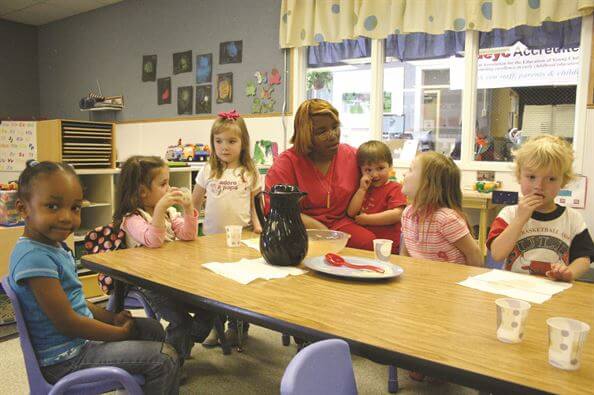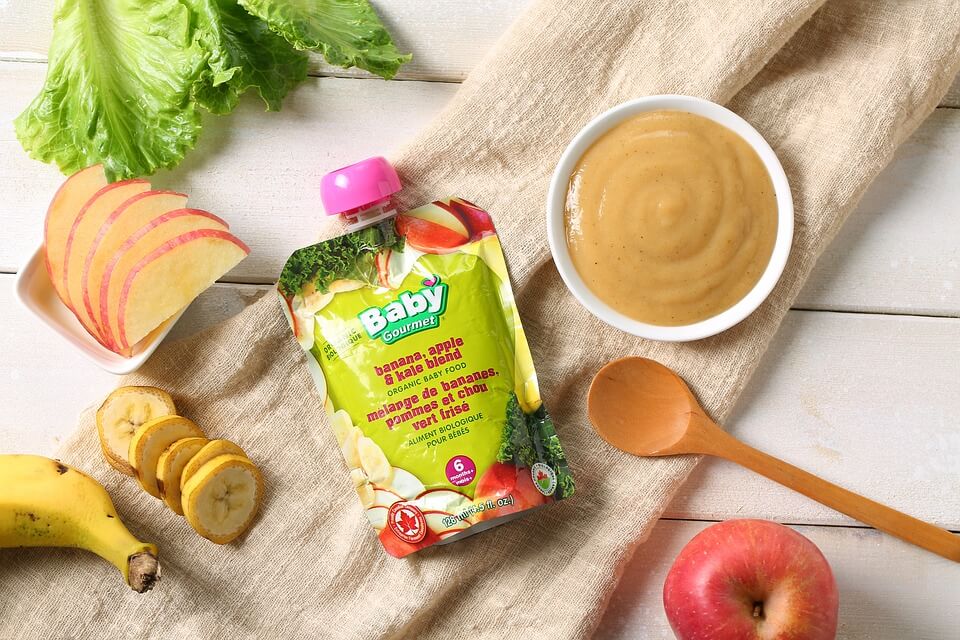
Nutrients For Toddlers
Before moving onto nutrients for toddlers, you should know how much brain development takes place in the first three years of your child’s life.
The first three years of life are a time of very rapid brain growth. The brain cells known as neurons rapidly increase in size during the first three years of life.
Individual neurons are structured much like trees. Each brain cell begins as a tiny sapling at birth and gradually sprouts hundreds of long branches called dendrites.
Myelination of nerve cells also begins around birth and is most rapid during the first two years of life.
How important are nutrients during this crucial period of brain development?
Brain development is most sensitive to a baby’s and a toddler’s nutrition between mid-gestation and two years of age.
Toddlers who suffer from chronic malnutrition during this critical period have smaller brains as a result of reduced dendritic growth, reduced myelination and the production of fewer brain cells known as glial cells.
Compromised brain growth can result in long-term irreversible behavioral and cognitive deficits. Good nutrition is important for cognitive development.
Emerging science shows that many nutrients are needed for healthy brain function. Essential fatty acids – ALA (Alpha-linoleic acid) & LA (Linoleic Acid) are known to support brain development.
Iron is an integral part of hemoglobin which supplies oxygen for the brain to function. Choline helps in the formation of the neurotransmitter. Iodine helps in cognitive development.
With this being said let’s move on to how it affects the physical development of toddlers.
A balanced diet that contains all the food groups will help ensure your child has proper growth & development to stay healthy & disease free. 3-year-old “picky eaters” have lower levels of carotene, iron, and zinc than “non-picky” eaters. (Interestingly, picky eaters were shown to have higher “free sugar intake,” which perhaps isn’t that surprising when you consider how processed some “kid-friendly” foods can be.).
What are the effects of not getting proper nutrition, on toddlers?
Lethargy
Little kids are known for having boundless energy, but if your child is more interested in binge-watching Paw Patrol on the couch than playing at the park, it could be a sign that he’s low on iron or even anemic.
Trouble Paying Attention
If getting your kid to focus seems like mission: impossible, a lack of foods containing zinc could be partly to blame.
Zinc-rich foods include meat, certain vegetables, beans, and whole grains…all of which might be things your kid refuses to eat.
Thankfully, zinc is present in lots of fortified cereals, too, and chances are, that’s something they’ll gladly eat seconds of.


Dry Skin
If no amount of lotion seems to soothe your child’s dry skin, don’t assume that the winter weather is necessarily the cause — a vitamin deficiency could also be the problem.
V=Dry skin can either mean you’re chronically dehydrated, or it means that you need to increase your essential fatty acid intake, vitamin A, and vitamin E intake.
Potassium and vitamin D need to be added too. f course you should always check with your child’s pediatrician before starting him on any supplements, but it’s definitely something to consider.
How do you give proper nutrition for toddlers?
Give them food which they are enthusiastic about eating.
Your toddler may be enthusiastic about eating, but he or she may have very specific food preferences.
Some preferences may vary from day today. For example, your child may gobble down a particular food one day, and then push away the same food the next day.
She may ask for a certain food for several days in a row, and then insist that she doesn’t like it anymore. As irritating as this behavior can feel, it is very typical for a three-year-old.
It is best not to make an issue of it. Instead, continue to offer a variety of healthy foods, and let your child choose which of them and how much he or she will eat.
Offer Nutritious Food Choices at Every Meal.
As a parent, your job is to make sure that your three-year-old has nutritious food choices at every meal. After offering healthy options at the table, let him or her make the decision of how much to eat.
If your child shows picky eating preferences—resisting vegetables, for example—don’t get discouraged or frustrated. Keep offering a variety of healthy foods, even if your child did not like them before.
Developing a taste for foods can require up to 15-20 repeated exposures. This is also an important time to establish healthy snacking and meal habits.
Meals Can be Simple and Nutritious.
Remember, meals at this age don’t need to be fancy. In fact, most three-year-olds prefer simpler preparation.
If you only a few minutes to prepare a meal, try simple meals that include a protein source, whole grain, fruit, vegetable, and dairy.
For example, a turkey or peanut butter sandwich, a serving of carrots, an apple, and a glass of milk.
A simple lunch like this takes less time to prepare than driving through a fast-food restaurant—and it is much healthier!





Leave a Reply